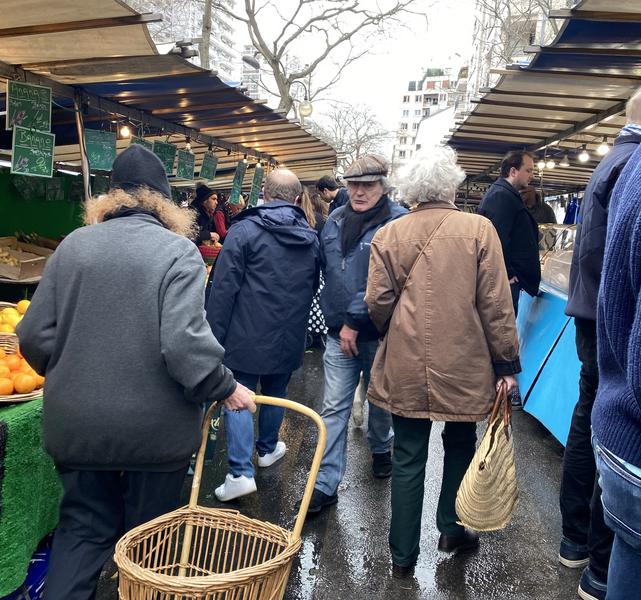Thoughts and Suggestions from an Aging Psychologist.
The Retirement Lull
Later in life, when roles and relationships become altered and lost, there is often an ennui that develops, casting a patina of dullness over our daily life. Yes, our calendar is full, and time is meted out, but the days somehow feel ungratifying. It is not unusual for recent retirees to remark, “I am so busy. I don’t know how I ever had the time to work.”
Our calendars become filled with errands and appointments. The errands are usually domestic ones, such as shopping.

With time now available because we’re not working, there is a tendency to become less efficient. For example, now we visit multiple markets and shop more frequently. And when errands don’t fill the time available, appointments can and do. Especially medical appointments.
The Complex Medical World
There are reasons for this. Older persons have more aches, pains, and issues to be addressed by medical professionals. And the medical profession over time has splintered into numerous sub-specialties. A couple of years ago, I broke my toe. As it was healing badly, my primary care doctor suggested I consult with an orthopedic surgeon. While searching for one, I discovered that orthopedic surgery is sub-divided according to what parts of the body the surgeon was trained to treat. Spine? Lower limbs? Upper limbs? And ultimately, I landed on Foot and Ankle orthopedic surgery. I contacted the office and made an appointment. When I met the surgeon, I told her that I had not known that Foot and Ankle was an orthopedic subspecialty, and I jokingly asked if her surgical practice was for the left foot and ankle as my broken toe was on the left foot. She looked at me blankly and responded, “I can do surgery on either foot, the left or right.”
The present medical system is largely broken and excessively confusing. It consumes far more time to connect and schedule appointments than ever before. And between providers, communication is sketchy, high-tech dependent, and rapidly changing. So, at the time in life when energy does indeed diminish, and the learning curve takes a bit more time, the tasks of managing and executing the requisite errands and appointments come to define the day.
Losing Purpose and Meaning
What gets relegated to the periphery or goes missing altogether are the stimulating, meaningful, and forward-looking things. Things that matter. Little is spoken about mattering, but as a clinician with older persons, it became very clear how essential the loss of things that matter is experienced as chronic distress and can progress along the continuum to clinical depression. It is also clear that societal ageism, with its contribution to the invisibility of the aged person, contributes to the distress.
What I experienced with my patients I am now experiencing with my age mates and myself as we look back together, talking about what matters now and at earlier stages in our lives.
But aging is a dynamic process and requires more than just looking back because we live it in the present. That necessitates present meaningful and purposeful contributions to the life we’re living now. The time comes when we are relieved of the role of active parenting; our children are launched. We retire from our work. We become widowed or divorced; are no longer a spouse. When these roles or relationships are lost, much of what shored up our sense of self is lost too.
As we approach the end of life, it is important that we believe somehow that our life has mattered. This is often a theme in therapy with older adults. But mattering is formative as well as summative, and what is happening now informs the legacy until the end. Today is what we have.
Staying Connected and Engaged
We humans are a communal species. We need others to reflect who we are, to appreciate our uniqueness and help us to hold on to ourselves, especially when important anchors are lost. Now we need to:
- Keep/develop/make friends
- Understand that Meaningful, Purposeful, and Relational are the essential ingredients of Mattering
Meaningful, Purposeful, and Relational are the essential ingredients of Mattering.
Activities
Reconnecting and Reminiscing: A Walk Down Memory Lane
With a friend (or more, new or old, silver or gold), plan a walk or a coffee date. But leave behind the “organ recital” and “complaints du jour” - no health reports on assorted body parts or grumbling about the morning’s hiccups. Instead, choose a question that is pleasant, funny, comfortably intimate, and requires some reminiscence. Take turns asking each other and let the memories flow.
Potential Questions to Spark Conversation
I recall my daughter calling butterflies “flutter-bys” - it was just too adorable!
- Childhood Language Gems: What were the funniest (mis)uses of language your kids produced when they were little? Perhaps they called roast beef “roast beast” or referred to telephone wires as “telephone birds”?
- Parenting Practices of Yesteryear: What did you do when your kids were little that would be considered shockingly unacceptable today? For instance, many of us brought our babies home from the hospital on our laps with no seatbelts or car seats. Cribs had dangerously spaced slats, bike helmets weren’t a thing, and don’t even get me started on the questionable food choices!
- Office Party Shenanigans: What was the strangest, funniest, or weirdest holiday party at your workplace? Share a good story, but let’s keep the juicier details offline! The goal is to reconnect, reminisce, and share a laugh or two. So grab a friend, lace up those walking shoes or find a cozy cafe, and let the memories and good times roll.

Photo by the author.